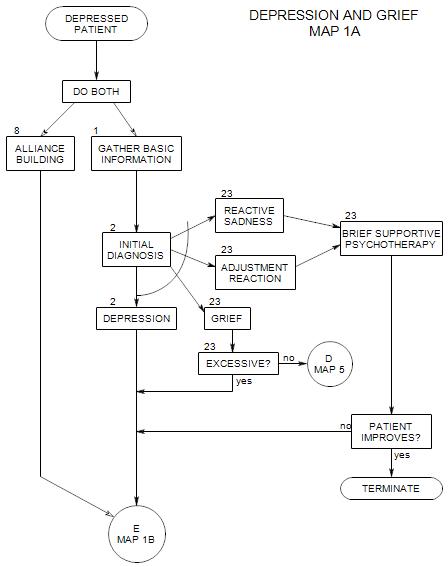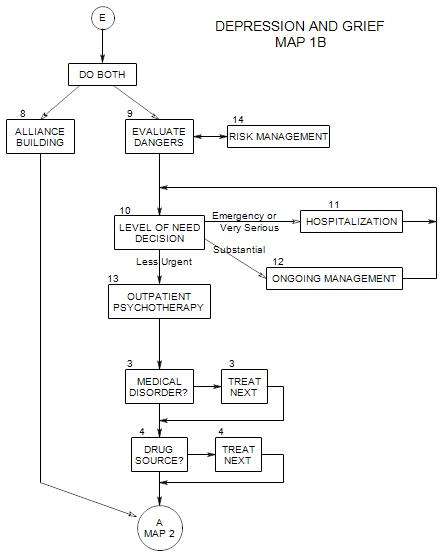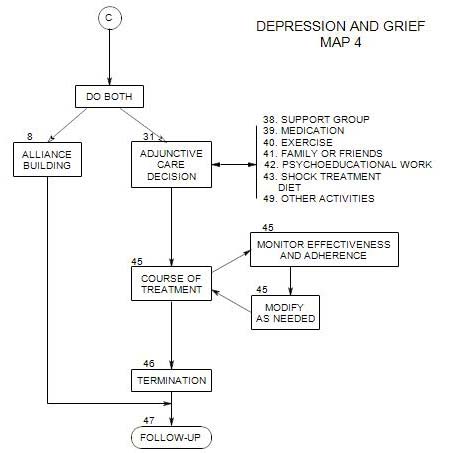DEPRESSION AND GRIEF MAPS: 1A | 1B | 2 | 3 | 4 | 5
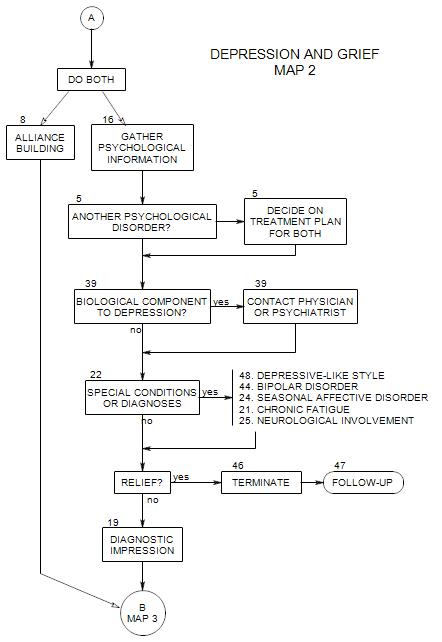
SECTIONS: 5 | 8 | 16 | 19 | 21 | 22 | 24 | 25 | 39 | 44 | 46 | 47 | 48

SECTIONS: 5 | 8 | 16 | 19 | 21 | 22 | 24 | 25 | 39 | 44 | 46 | 47 | 48
DEPRESSION AND GRIEF MAPS: 1A | 1B | 2 | 3 | 4 | 5
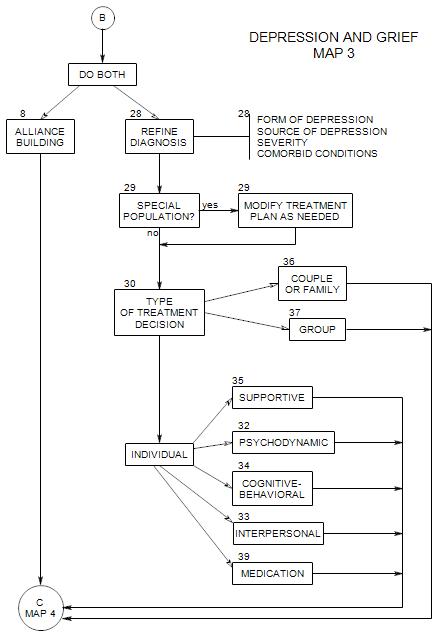
SECTIONS: 8 | 28 | 29 | 30 | 32 | 33 | 34 | 35 | 36 | 37 | 39

SECTIONS: 8 | 28 | 29 | 30 | 32 | 33 | 34 | 35 | 36 | 37 | 39
45. COURSE OF TREATMENT
-
Follows from Section 31 on Map 4.
There are a number of specific issues to keep in mind when dealing with a depressed patient.
- Maintain an emotionally supportive relationship with the patient.
- Be alert to destructive impulses directed toward self or others.
- Provide an understanding of the patient’s depression and a plan for treatment that the patient can accept and contribute to.
- Work on the patient’s issues, especially those that appear to be contributing to the depression
- Help the patient deal with the requirements of daily life, if help is needed
- Discourage the patient from taking major actions based on the current depressive state
- Encourage the patient to expect improvement
- Enlist the support of others in the patient’s social network, and providing them support if needed.
- Set realistic, tangible goals
- Encourage the patient to seek new success experiences, however small, including greater engagement with the outside world.
- Deal with externally imposed limits and intrusions…
―from family.
―financial.
―by insurance and managed care.
You may need to be more active than with other patients relative to ongoing case management, as needed. Depression often depletes a person of the energy needed to take action on his/her own behalf.
Points of Concern
- Times between appointments can be problematic for depressed people. You may need to make arrangements for extra telephone calls.
- Any change in your schedule that affects session times may be interpreted as abandonment.
- Special work may need to be done around your vacation time, to prepare the patient. Arrangements may need to be made in case of worsening depression.
- Noncompliance is a major problem with all medications, and medications not taken can’t help. Commonly patients stop taking them because they are impatient or don’t like the side effects. You should help the patient evaluate the effectiveness of medications and the nature of side effects, and make choices about continuing the medications or asking his/her physician for a modification.
